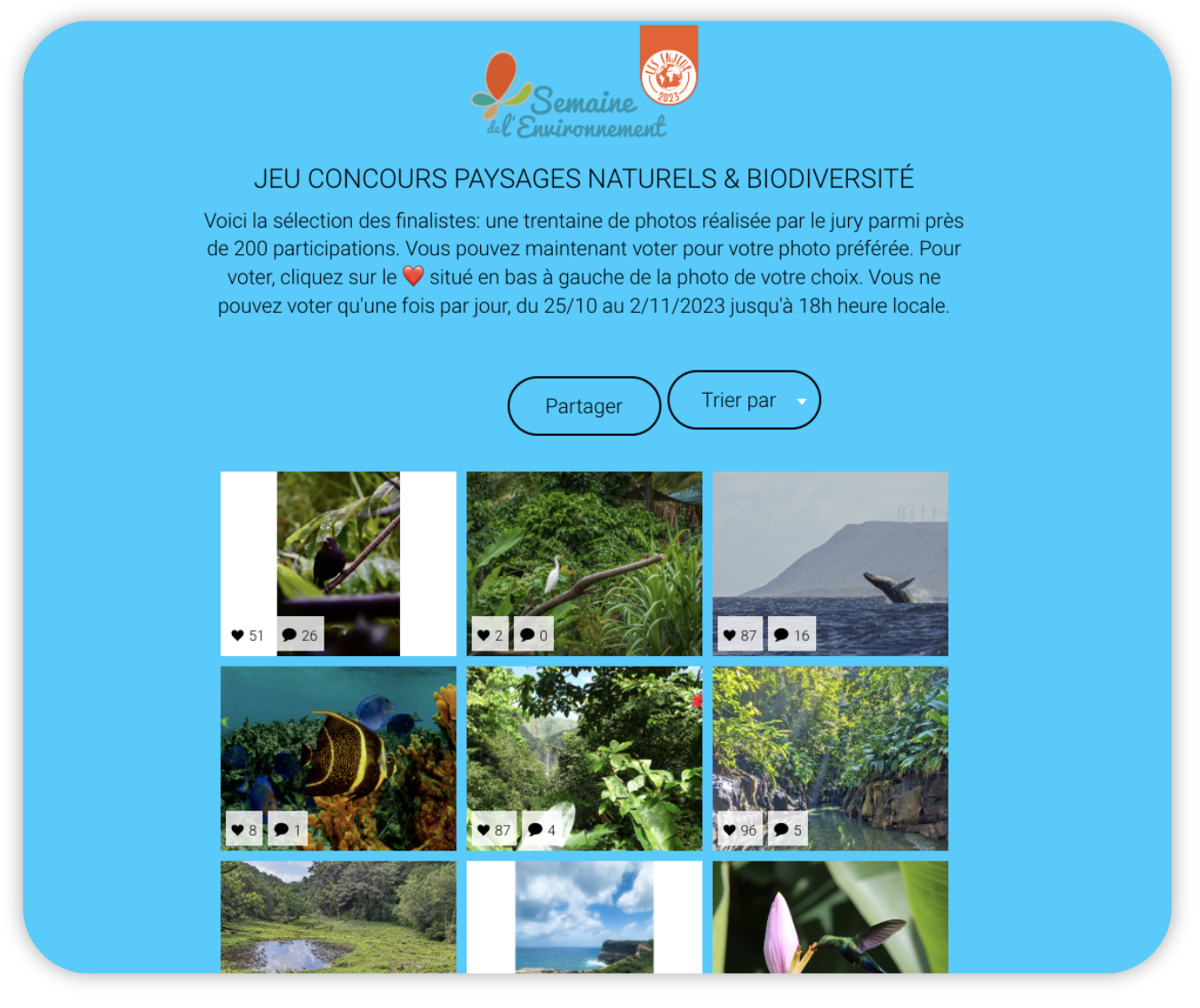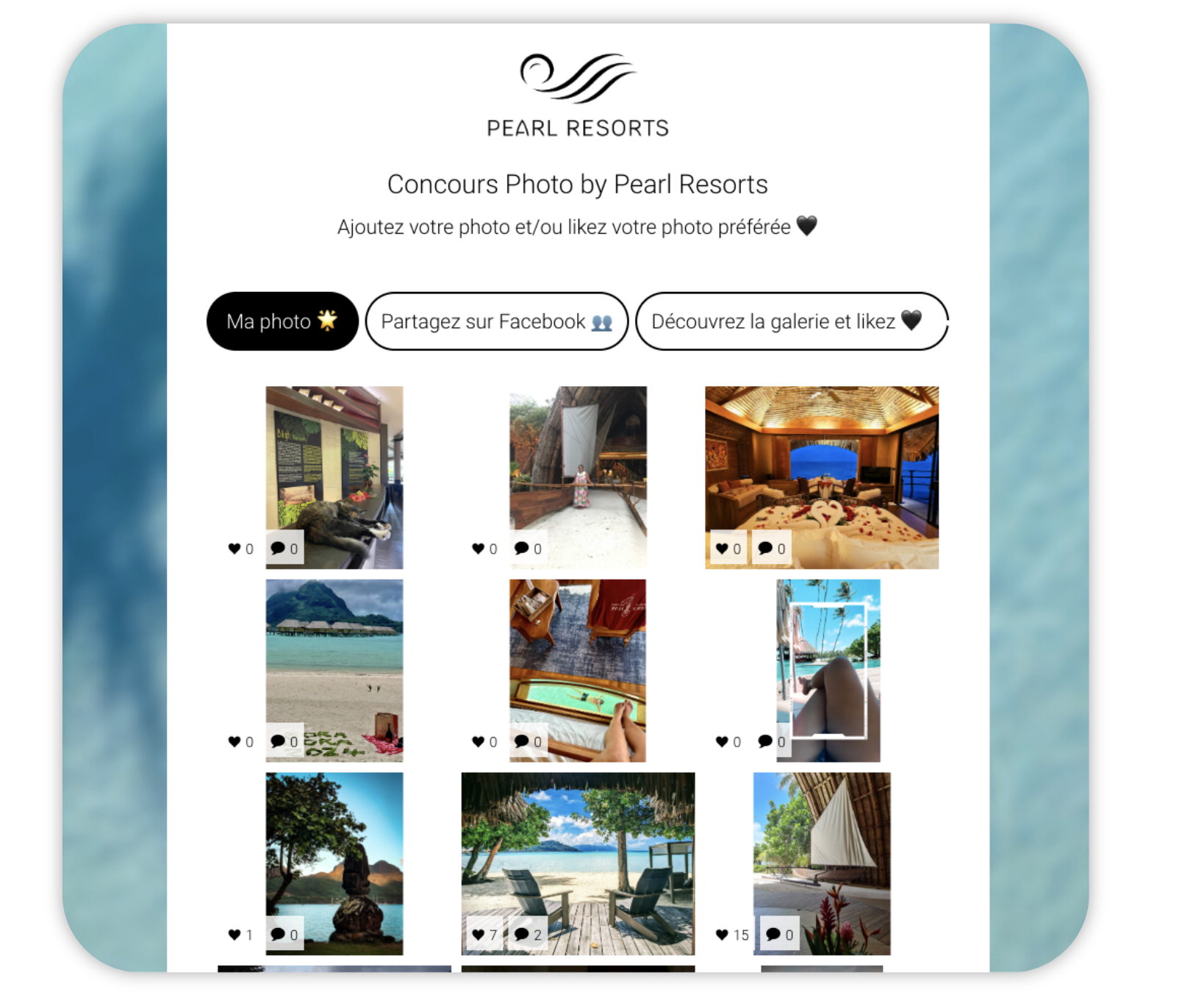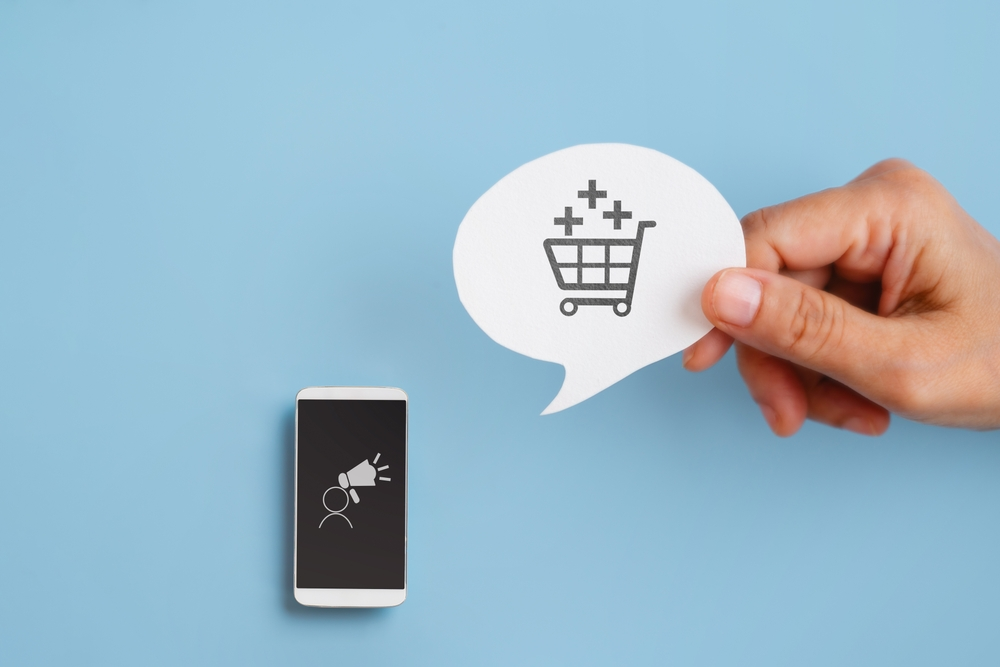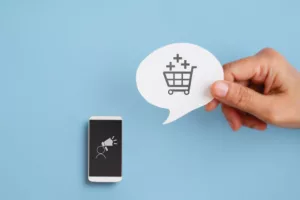Consumers expect brands to be authentic and to embody their values. UGC (User Generated Content) is a powerful lever in the face of traditional advertising, which often has little impact.
By relying on content created by their audience, brands can put in place personalisd and engaging communications. This conten attracts attention, inspires trust and influences pruchasing decisions.
Let’s take the example of gamification as a tool for collecting UGC. Brands can transform their customers into ambassadors by integrating interactive mechanisms into their campaigns. This maximises the impact of the marketing strategy.
Discover our advice on how to combine competitions and User Generated Content as well as examples of how to gamify your UGC campaigns.
Definition of UGC in marketing
UGC (User Generated Content) refers to content created and shared by a brand’s customers rather than by the brand itself.
This content can take various forms
- Customer reviews: A user leaves a comment and a ratng on a product on Amazon or Trustpilot.
- Photos and videos posted on social networks: A customer shares a photo of his newNike sneakers on Instagram with the hashtag #JustDoIt.
- Customer testimonials and unboxings: A micro-influencer post a video on YpuTube or Instagram showing him unpacking his parcel and discovering the products he ordered from the brand.
- Challenges and TikTok trends: A brand-sponsored chammenge invites customers to perform a specific dance or challenge related to the brand’s universe.
- Personalized creations: A fashion brand encouraged its customers to share their customized garments.
UGC allows brands to benefit from free, authentic advertising, often more powerful than content produced by the companies themselves.
What are the advantagesof UGC for brands?
User-generated content (UGC) offers several advantages for bradns. It reinforces their authenticity, influences purchasing decisions and promotes customer engagement and loyalty.
1. Enhancing authenticity and credibility
2. Influence on purchasing decisions
3. Foster customer commitment and loyalty
Why link competitions and UGC?
The challenge for brands wishing to generate UGC is to find ways of encouraging their community to share content.
Gamification offers a number of advantages to brands wishing to boost their UGC strategy. It introduces the appealofrewards and the fun aspect of a challenge. The competition encourages participants to get involved in content production.
Here are the advantages of this strategy:
- Motivation through rewards.
Offering gifts encouraged the creation of original content. The more desirable the reward, the higher the level of engagement. - A structuring framework that guides creativity.
Setting clear rules (a theme, a format, a hashtag) ensures consistency with the brand image. This avoids irrelevant entries and leaves room for creativity. - A viral mechanism that amplifies visibility.
Encouraging participants to share their content on social networks increases organic reach. Voting can reinforce this virality by encouraging candidates to mobilize their community. - A close relationship with the community.
The competition showcases users’ creations. This reinforces the sense of belonging and boosts loyalty.
Examples of UGC-based contest
Depending on their sector of activity, brands can deploy different mechanisms to generate UGC.
- Fashion: video challenge where users show off their beauty routine using the brand’s products. They then share the results on Instagram or TikTok.
- Travel: Invite travelers to submit photos or videos of their favorite destinations, to showcase the brand’s services and win a trip.
- Retail: Invite customers to share their recipes (via a Text Contest) using the brand’s products; with rewards for innovative creations.
- Technology: Encourage users to produce tutorials or reviews on the use of the brand’s gadgets or software, rewarding useful and creative contributions.
Our tips for gamifying your UGC strategy
1) Find the right balance in the context rules
How? Define clear criteria (theme, format,hastag) while leaving room for originality.
Example: For its photo contest, the Pearl Resort hotel group invited participants to share a snapshot capturing “the unique identity of one of our hotels”. The brief was both precise, to produce content relevant to the campaigns, and broad, so as not to restrict participants.
2) Make the contest more interactive with community voting
Example: For its “Natural landscapes and biodiversity” competition, the Environment Week invited its community to vote for their favorite photo via a Fan’s Choice mechanism.

3) Choose attractieve, relevant rewards
Why? A good reward boosts participation and motivates you to produce quality content.
How? Offer prizes in line with your brand universe, the theme of the competition or a marketing highlight.
For its UGC competition, Pearl Resort was offering some very attractive prizes – free nights in its finest hotels. As a result, the campaign attracted over 4.9K entries.

Competitions are a way of encouraging your community to produce quality UGC. You can use it to optimize your marketing campaigns. With Socialshaker, you can organize online contests (photo, video, written) to encourage content generation and strengthen brand loyalty!






